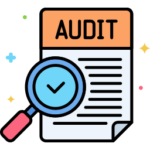Opening Hours: Mon – Thur 8:30 am – 5:00 pm Fri 8:30 am – 4:00 pm
“Spectrum Management: A Catalyst for Transformation and Economic Growth within Jamaica and the Caribbean Region”
Spectrum management must align with the dual goals of improving lives and bolstering our economy. It is crucial that the Spectrum Management Authority, referred to as “The Authority,” equips stakeholders with a clear understanding of what this entails.
Radio communications permeate every aspect of daily life; they are ubiquitous. In truth, nearly all sectors within our economy either currently leverage or are poised to harness Radio Frequency (RF) technology to enhance their products and services further. As we reflect on fiscal year 2019/20, the Authority takes pride in its achievements during this period marked by numerous milestones while successfully regulating and overseeing this limited resource.

A significant accomplishment was making an impact at the World Radiocommunication Conference (WRC-19) in November 2023 alongside initiating planning sessions for WRC-27—events that set global standards for RF usage among nations. The International Telecommunication Union’s World Radiocommunication Conference 2023 (WRC-23) is instrumental in defining both technical specifications and regulatory frameworks governing radiocommunication services across terrestrial, aerial, maritime, and space domains. These discussions aim to expedite progress towards fulfilling the United Nations’ Sustainable Development Goals (SDGs), which Jamaica supports wholeheartedly. This vision rests upon a solid foundation fostering various emerging technologies designed to transform the digital landscape—including artificial intelligence, big data analytics, IoT applications, and cloud computing solutions.
The Authority actively participated in preparations leading up to WRC-19 through collaboration within study groups under ITU-R regulations along with conference preparatory meetings and inter-regional workshops. Our cooperation extended into regional organizations such as the Caribbean Telecommunications Union (CTU) as well as The Inter-American Telecommunications Commission (CITEL). All these engagements contributed significantly toward achieving consensus at international forums.
It should be noted that efforts related to WRC-23 commenced four years prior through dedicated teamwork involving members from diverse stakeholder backgrounds who shared a unified perspective concerning harmonizing RF use globally—particularly focusing on Research & Development initiatives along with Disaster Recovery strategies aimed ultimately at safeguarding human existence via wireless communication advancements. Moreover, technological innovations like Satellite systems combined with High Altitude Platforms (HAPs)’ emergence seek solutions against Digital Divide challenges—a recognition that internet accessibility constitutes an essential right for today’s digital citizens.
The core mission of The Authority revolves around ensuring equitable access coupled with responsible utilisation of radio-frequency spectrum resources while promoting efficient operation across all radiocommunication services throughout Jamaica’s territory. During this review period, the results manifesting from these endeavors became evident – physical monitoring capabilities expanded dramatically thanks largely to increased site numbers reaching sixteen (16) locations complemented by additional vehicles enhancing strategic planning processes regarding RF management beyond national borders.
Indeed, radio communications influence countless elements of integral daily routines—from mobile communications and broadcast television programs to air travel navigation systems —and even medical devices, including CT scans, X-ray machines, and ultrasound equipment. Furthermore, radiotelecommunications serve vital roles monitoring environmental variables such ocean temperature fluctuations vegetation growth patterns groundwater levels greenhouse gas emissions – empowering predictions pertaining famine occurrences hurricane trajectories climate shifts overall.
In light of recent global pandemic dynamics, billions individuals’ businesses interconnected Internet underscoring profound transformations experienced across societal interactions commerce landscapes alike driven ICT proliferation reshaping conventional paradigms fundamentally shifting operational modalities interacting realms business relationships day-to-day living experiences alike.
Upon self-evaluation, the authority surpassed established Key Performance Indicators (KPIs ) related primary functions encompassing licensing new renewals interference resolution financial oversight measures. Additionally, the inaugural Forum Global Symposium focused specifically on the Caribbean region, facilitating exchanges with local regional international participants and addressing pressing matters influencing the nationwide development agenda. Similarly conducted over seventeen stakeholder engagement events one singularly emphasising aeronautical ban importance collaborating broadcasters Jamaican Civil Aviation authorities Broadcasting Corporation Jamaica respectively.
Moreover ongoing outreach efforts engaging surrounding communities continue building partnerships creating opportunities especially targeting youth inclined pursuing careers information communication technology sector highlighted activities ranging Beach Clean-Up Day held October Health Fair event scheduled December upcoming calendar year slated promote wellness sustainability community involvement reach out strengthen bonds neighborhoods effectively improve quality life residents impacted positively thereby situating groundwork future generations thrive sustainably..
Through resilient commitment dedication demonstrated thus far culminating successful completion FY reinforces determination shape promising horizons utilizing advanced wireless technologies benefit society broadly cultivates optimism amongst citizenry paving pathways innovation progress assured brighter tomorrow ahead!
IT departments play a critical role in overseeing the management of essential applications and communication platforms within the organization. These applications and platforms encompass a wide range of tools, including email services, instant messaging systems, and video conferencing solutions, all of which facilitate seamless communication and collaboration among employees. Given the increasing reliance on technology for day-to-day operations, the importance of maintaining these systems cannot be overstated.
In addition to ensuring that these vital communication tools are accessible and dependable, IT departments are tasked with implementing robust security measures to protect against unauthorized access and potential hacking attempts. This involves not only regular system updates and patches but also the deployment of advanced cybersecurity protocols designed to guard against various cyber threats, such as malware, phishing attacks, and data breaches.
Moreover, IT team members must stay abreast of the latest developments in technology and cybersecurity trends to effectively respond to emerging threats. This proactive approach often includes conducting regular audits and assessments of the systems in place, as well as providing training and resources to employees to help them recognise and avoid potential security risks.
Ultimately, the multifaceted responsibilities of IT departments extend beyond mere maintenance; they are essential to fostering a secure and efficient digital environment that supports the organization’s goals and enhances productivity across all levels of the workforce. Through their diligent efforts, IT departments ensure that communication flows smoothly and that sensitive information remains protected, thereby contributing to the overall success of the organization.

The Operating Systems and Special Projects Unit (OSSP) enhances SMA’s project management capabilities through strategic leadership and process integration, ensuring efficient and consistent project deliveries. We focus on maximizing social and economic benefits while coordinating all funded projects. We develop corporate and operational plans aligned with SMA’s strategic goals. By implementing control mechanisms and standardized procedures, we optimize resource use for value across initiatives.
Strong partnerships with domestic and international donor agencies boost our operational efficiency. Our technical guidance and administrative support empower project officers in complex situations. We provide regular updates to the Managing Director, ensuring accountability and timely project completion while minimizing costs through proactive oversight. The OSSP manages SMA’s core licensing system, enabling online applications for spectrum holdings. We prioritize user-friendly features and deliver training for both internal and external users to enhance their experience. Robust user support maintains high satisfaction and trust among stakeholders, while we uphold data integrity. We actively participate in crafting Strategic Operational Plans for the Spectrum Engineering Division, ensuring alignment with long-term objectives.
Collaboration with equipment vendors and internal teams optimizes maintenance and compliance with warranty specifications. Regular performance reports enhance transparency and decision-making, reinforcing organizational credibility. We proactively engage clients and stakeholders in spectrum management discussions to uphold our authority’s reputation and align with national telecommunications priorities.
Participation in local, regional, and global best practices fosters professional growth, supported by the Departmental Staff Development Plan. This collaborative approach enhances our ability to navigate challenges and advance the telecommunications sector, driven by the innovative E-licensing platform that revolutionizes spectrum management.

The Risk Manager plays a pivotal role in assisting the Board and Management with the formulation and execution of risk management strategies that align with the SMA’s business model. These strategies are crafted to ensure compliance with its operational mandate. The department actively facilitates the creation and implementation of risk management frameworks, policies, procedures, and systems throughout the Bank by engaging various ‘risk owners’ and ‘risk champions.’
Furthermore, the Risk Manager is responsible for orchestrating processes aimed at identifying, measuring, monitoring, controlling or mitigating financial as well as non-financial risks across the organization. This encompasses managing risks associated with banking operations within established risk appetites/tolerances while promoting a constructive risk culture organization-wide.
Operations within this department adhere to modern standards of risk management practices; it employs rigorous methodologies for assessing risks along with conducting regular evaluations concerning significant exposures and key indicators. High-risk areas identified by SMA are promptly communicated to senior management so that existing controls can be enhanced or new measures implemented effectively.
In addition to these functions, Risk Manager collaborates closely with business units alongside executive committees to guarantee effective control mechanisms are established—ensuring adequate responses to any identified ‘intolerable’ risks present in operations. Ultimately, it is incumbent upon the Risk Manager to oversee not only design but also implementation of comprehensive risk management strategies designed specifically for maintaining exposure levels related to current or potential future risks within acceptable parameters defined by institutional tolerances.

The Internal Audit Unit (IAU) plays a pivotal and indispensable role in enhancing the overall operations of the SMA by consistently delivering substantial value across various dimensions of the organization. This enhancement of operations is effectively accomplished through a comprehensive evaluation of the efficacy of risk management practices, control mechanisms, and governance processes within the SMA. The IAU achieves this critical function by providing assurance and advisory services tailored to the unique needs and challenges faced by the SMA.
In addition to its evaluative role, the IAU is deeply committed to promoting a robust culture of risk awareness throughout the organisation. This commitment is manifested in proactive measures designed to keep both management and staff well-informed about recent developments in risk management practices and regulatory changes. The IAU regularly conducts sensitisation sessions and training workshops as needed, ensuring that all personnel are equipped with the knowledge and skills necessary to identify and mitigate potential risks effectively.
The activities of the Internal Audit Unit are governed by several key frameworks and standards that provide a solid foundation for its operations. These include the International Professional Practices Framework (IPPF), which sets forth the essential principles and guidelines for effective auditing. Furthermore, the IAU adheres to established standards for risk management, relevant acts, regulations, and circulars issued by the Government of Jamaica. It also integrates international benchmarks and internal policies developed by both the Ministry and its Agencies into its operational framework. These guiding documents not only establish authority but also foster an environment that is conducive to achieving optimal performance. This environment is crucial for meeting the diverse expectations of stakeholders across all operational domains.
